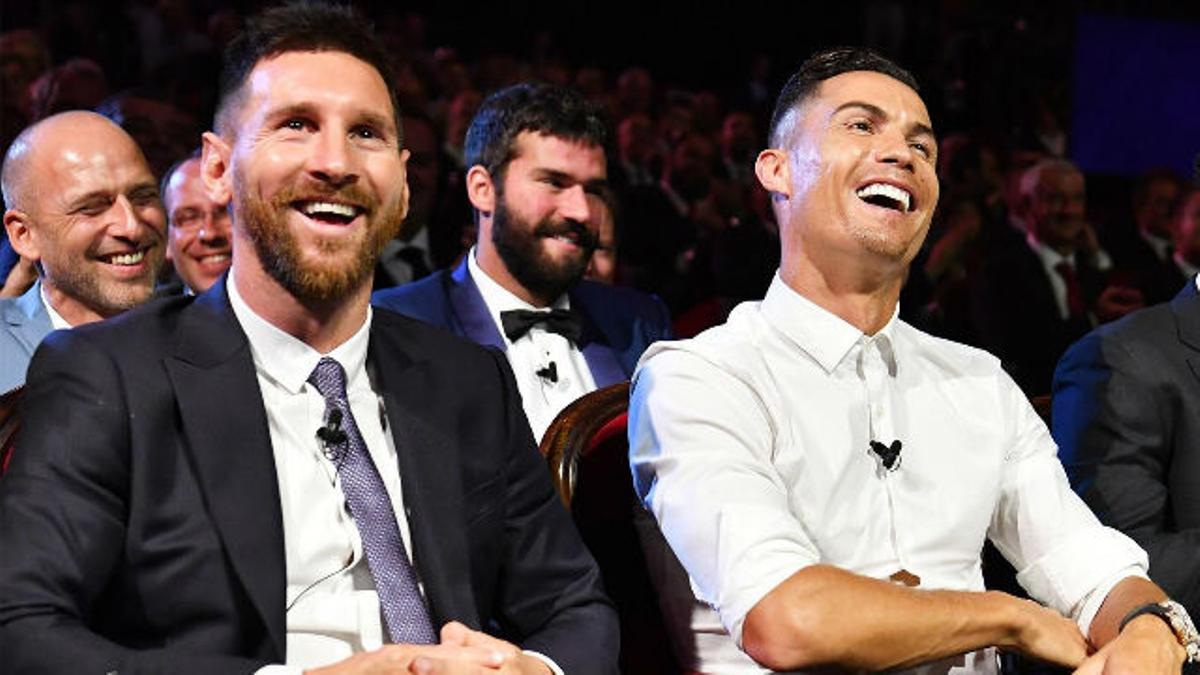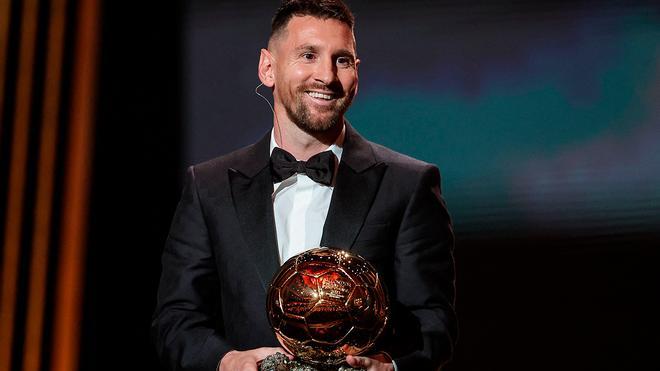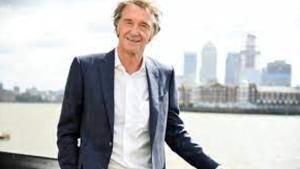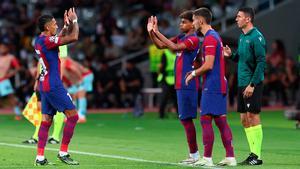The call that stopped Barca getting Messi and Ronaldo
Florentino Perez's election strategy could have led to a very interesting move for the Portuguese forward
Ramòn Calderòn knew that he had a battle on his hands from his very first day in office: Florentino Pérez was there and was not there. He would not confirm if he planned to be back in the near future, but everyone behind the scenes believed his return was imminent. Interestingly, on 30 October 2008, several qualified people resigned from various football-related companies, all of whom later ended up at Real Madrid. Florentino had discreetly begun his inexorable drive to return to the Santiago Bernabéu.
Calderòn reached the end of his second year in office expending just as much energy in defending himself from continuous attacks on his reputation as in celebrating the consecutive league titles clinched under Fabio Capello and Bernd Schuster. He spoke about covert activities behind his back calculated to undermine his authority and his presidency was tarnished with suspicion, insinuation and accusations of all kinds. The media pressure during that chaotic period at the club finally reached breaking point on 16 January 2009, the day Ramòn Calderòn announced his resignation as Real Madrid president. He left with his head held high.
In the coming months, five lawsuits were filed against him concerning his tenure at the club (he was alleged to have been implicated in a fraudulent vote by post, falsifying accounts, fraudulent commission, manipulating ticket sales). He was never convicted on any charge. He denied all the charges and none of them even made it to court. Just before his resignation there occurred one of the two crises that could have seen Ronaldo end up at FC Barcelona or Manchester City. Radio programme El Larguero confirmed that Cristiano had an agreement with Manchester United allowing him to leave at the end of the season ‘for a reasonable amount’.
The programme’s host, José Ramòn de la Morena, revealed that the Portuguese had a pre-contract including a confidentiality clause that could invalidate the agreement if broken. Clearly, somebody had ignored it by telling the journalist the details. Jorge Mendes, Ramòn Calderòn and José Ángel Sánchez had to make urgent phone calls to calm Ferguson’s rage. Meanwhile the Scot once again insisted to the English press that Ronaldo was going nowhere. The second crisis would be much more serious. It took place while powerful businessman Vicente Boluda was president, in charge since the departure of Calderòn to steady the ship and ensure the elections took place by 14 June at the latest. On 18 March, Eduardo Fernández de Blas, president of the lobbying group Ética Madridista, spoke at the Ferrándiz–AS Forum.
His analysis of the Real Madrid situation centred upon Ronaldo and the lack of players from the Spain squad at the club. ‘There are more Spaniards at Liverpool than at Real Madrid,’ he said. And added, ‘Cristiano is one of the best players in the world, but Manchester United are asking a lot for him and with that money we can sign two players from the Spain national team. We’ll have to see how advanced the deal is and what the coach wants. We also need to evaluate how responsible such an investment is, as it could put the club’s solvency at risk. Maybe it would be wiser to invest €100 million in several players rather than just one. And Spaniards, if possible.’
Fernández de Blas was supposedly independent, but his statements among groups of journalists and club members suited, or even chimed with, Florentino’s electoral campaign. Fernández de Blas ended up as vice-president on Pérez’s board a few months later. De Blas giving a kick-start to the campaign meant Pérez (whose actions also hinged on his wife’s poor health) could find out who his possible rivals would be and how they stood on delicate issues such as the cost of Ronaldo.
Vicente Boluda was startled to hear the accusation: he could not allow such a stain on his reputation or be accused of wasting the club’s resources. It was a very serious matter to hear De Blas say that he was putting the club’s finances in danger when in fact there was €140 million in the club coffers and the operation had been arranged with minimal risk attached. Fernández de Blas had painted a very distorted image of the club with such strategically timed populism, just before the chosen members’ assembly in which Boluda had to be ratified in order to be able to call elections further down the line. ‘So this is how far we’ve come,’ thought Vicente Boluda and he decided to take a change of direction that would free him from accusations.
As has been established, terminating the agreement would cost €30 million, so he called Jorge Mendes personally and offered to break the contract between Ronaldo and the club, and to pay the penalty. There was another, cheaper possibility. If the termination was agreed by both parties, no money would need to change hands. Real Madrid would free themselves from ‘throwing €94 million down the drain’ and, as Ronaldo still had his agreement with Ferguson, he would then be able to sign for any other club in the world. The step taken by Boluda was extremely bold and incurred unpredictable consequences. Would Mendes accept? And would Ronaldo, after taking so many steps towards touching down at the Bernabéu? What would the candidates to the presidential elections say if they found out? Could they halt Boluda’s tenure? And what would stand him in better stead? Paying the controversial €94 million, knowing that fans have short memories, or cancelling the agreement that would allow a wonderful player to sign for a rival?
Jorge Mendes’s reaction was surprising. He said it was fine to break the agreement with no cost to Real Madrid. He would send his lawyer Osario de Castro to Madrid the following morning. When Boluda told José Ángel Sánchez what had happened and how Mendes reacted, the chief executive could not believe it. And so began one of those crazy days. What was Mendes’s reaction down to? Ronaldo’s agent had two other offers for the player, both for a larger amount than Real Madrid’s and superior to what Ronaldo and Manchester United had agreed. One from Manchester City that some sources suggested could have reached €150 million and another one from FC Barcelona for €105 million.
A twenty-one-year-old Leo Messi who was enjoying his second season under Pep Guardiola might have shared the dressing room with Cristiano Ronaldo.
José Ángel Sánchez and other important Real Madrid directors feared that missing out on the Portuguese could result in a long period of struggling. ‘If Barça sign him, we won’t win a trophy for ten years,’ said a senior board member. Ronaldo had to join Real Madrid. José Ángel Sánchez asked people close to Boluda to help make him change his mind. ‘It would be a crazy step backwards,’ the president was told. But Boluda insisted that he would not be the ‘dickhead’ who would put the economy of the club in danger with such a brutal expenditure. Tensions reached boiling point.
In the end the crisis was resolved in a most unusual fashion. Sánchez convinced Boluda to call Florentino Pérez. The suggestion could sound strange because the former president had not yet confirmed his candidacy, nor was he part of the club, nor did he have any type of influence, in theory at least. But nobody doubted that he had some role in Fernández de Blas’s statement. The businessman from Valencia decided to follow his advice. It was eleven at night, after a pressure-filled day of phone calls. Boluda, who was with his trusted associates including José Ángel Sánchez, put the phone on speaker. It was a swift conversation.
Boluda explained that he was fed up with Fernández de Blas’s messages about Cristiano, the inconvenience of the signing, how expensive he was and the false statement that it would put the club’s finances in danger. Florentino answered quickly: ‘De Blas won’t say another word on this matter.’ Despite being a signing ‘by the enemy’, Pérez could not conceive returning to the club to take on a Barcelona with Leo and Cristiano in its ranks. Florentino therefore asked for the contract with Ronaldo not to be broken and for the signing to go ahead. Mendes received a call that very same night and his lawyer Osorio did not fly to Madrid after all. Crisis averted. A few days later, Florentino Pérez finally announced that, as expected, he was running.
An extract from Sport writer Guillem Balagué's biography of Cristiano Ronaldo, available here.
Topics with the letter





